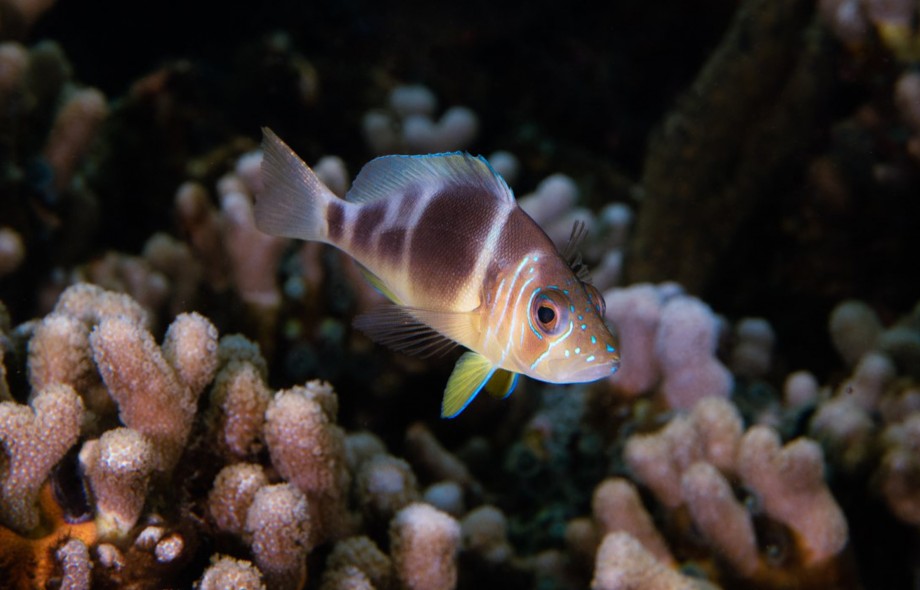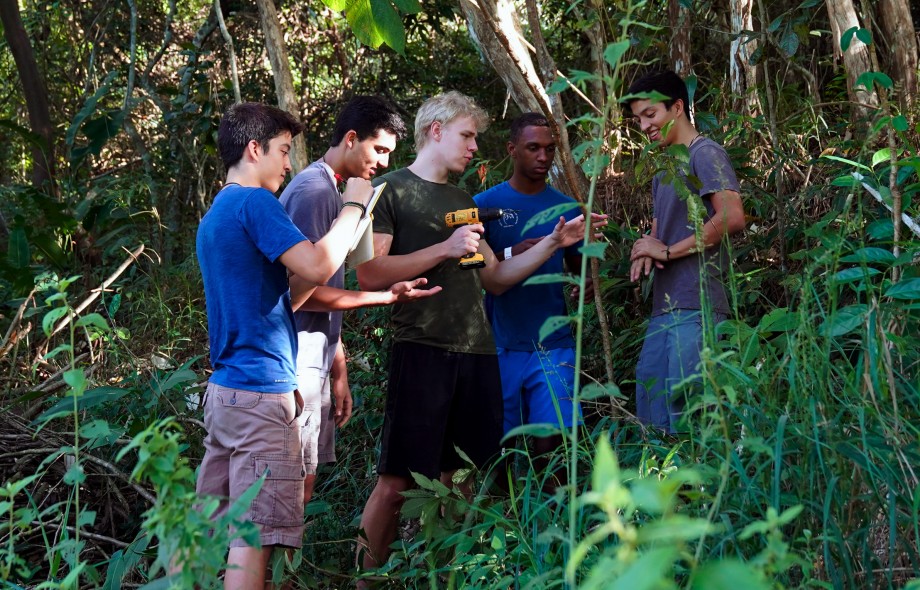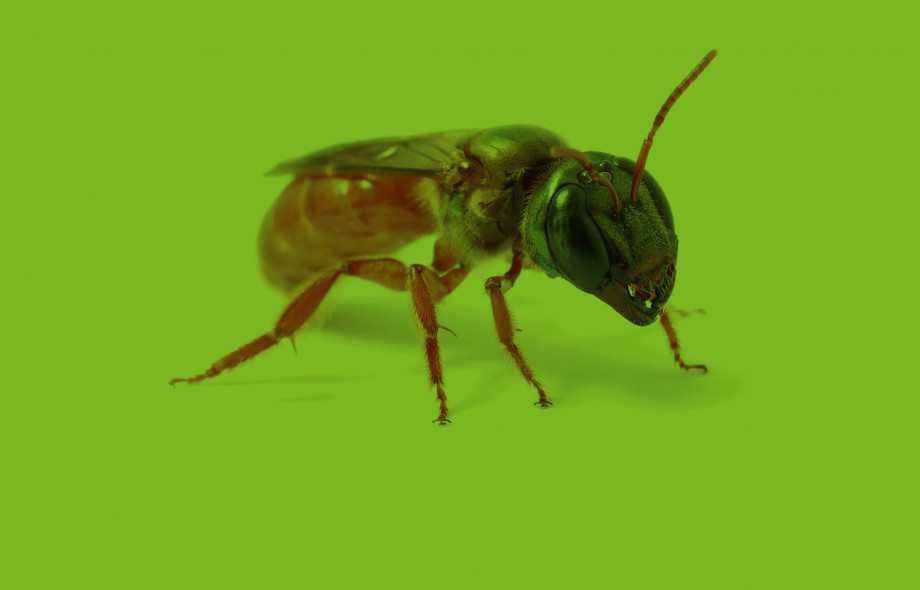Did you know that there are more than 20,500 species of bees, each with its own natural history?

You are here
Projects
& Stories
William Wcislo
Irene Kopelman’s most recent exhibit, which includes a new collaboration with the Smithsonian Tropical Research Institute, can be seen at Panama’s Museum of Contemporary Art.
The first winner of the D. Ross Robertson Postdoctoral Fellowship for Field Studies on Neotropical Reef Fishes, Floriane Coulmance, tests a new, underwater camera system to study the connection between hamlet color patterns and genetics in fish from four countries around the Caribbean and Gulf of Mexico.
A group of high school students describe how Azteca alfari ants respond to damage to their host plant
Sweat bees navigate through dark tropical forests guided by canopy patterns.
Timber anatomy studies help inform conservation and restoration decisions for historical monuments, and may provide previously unknown information about the artistic techniques or materials used in the past





